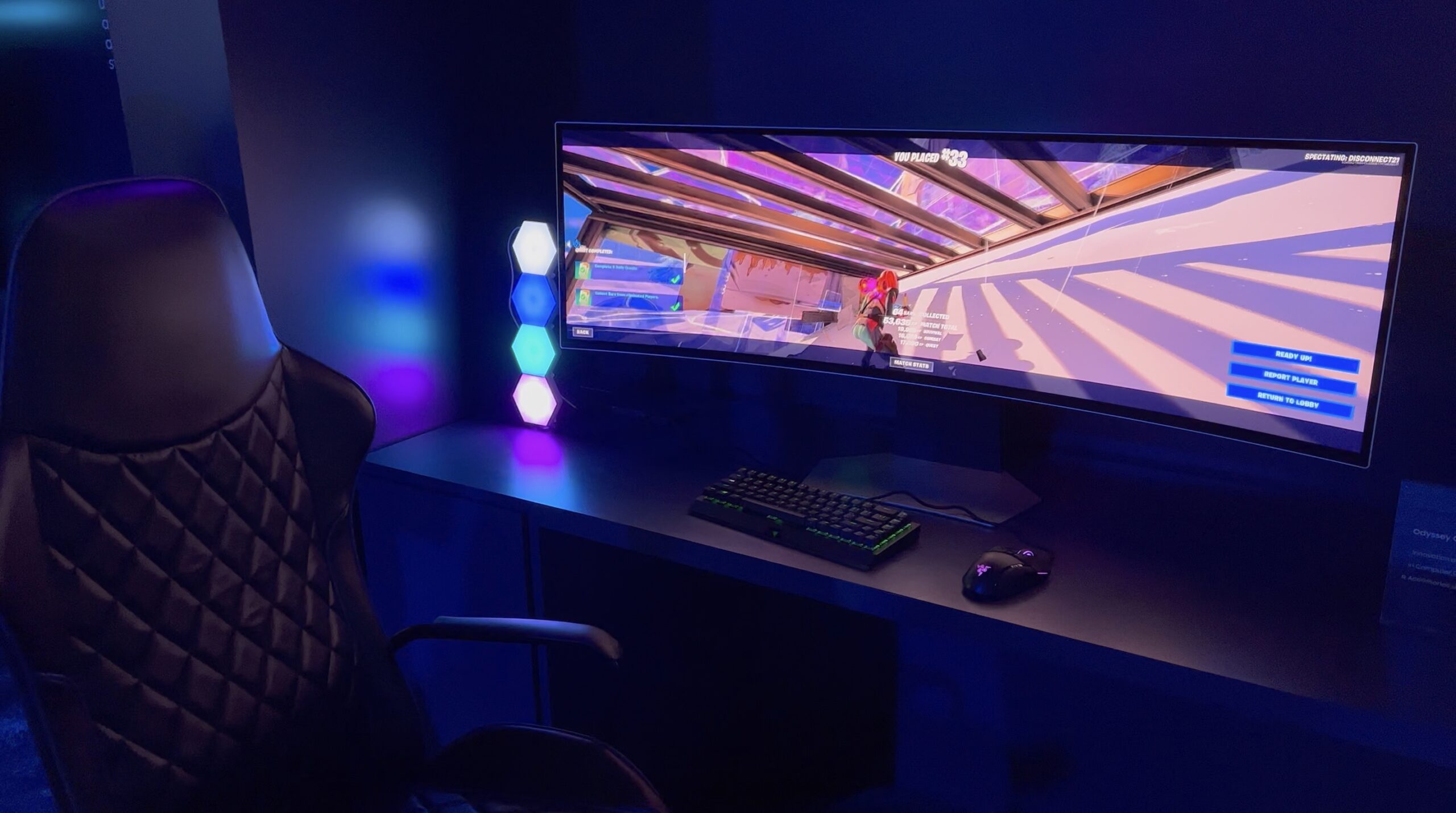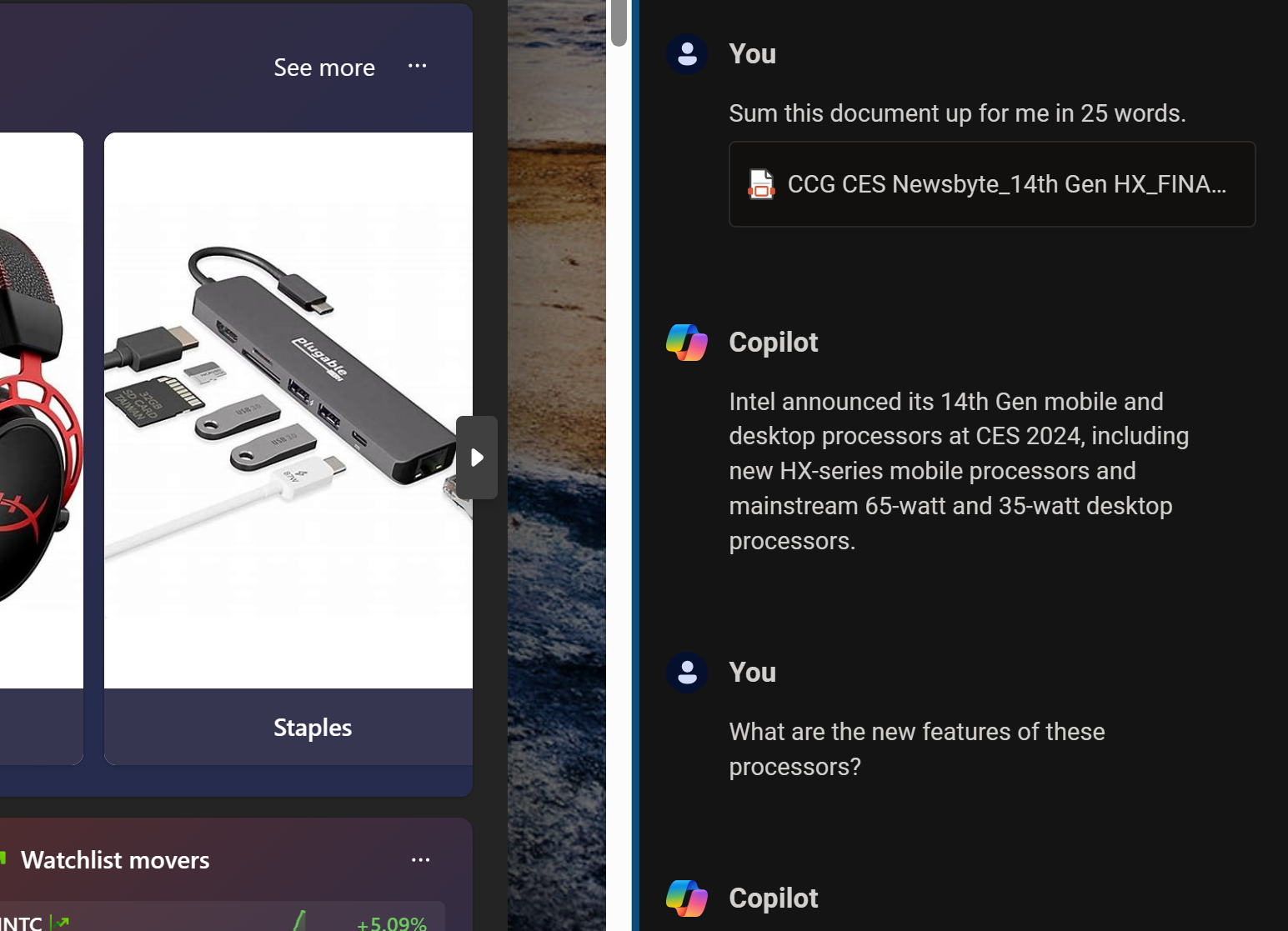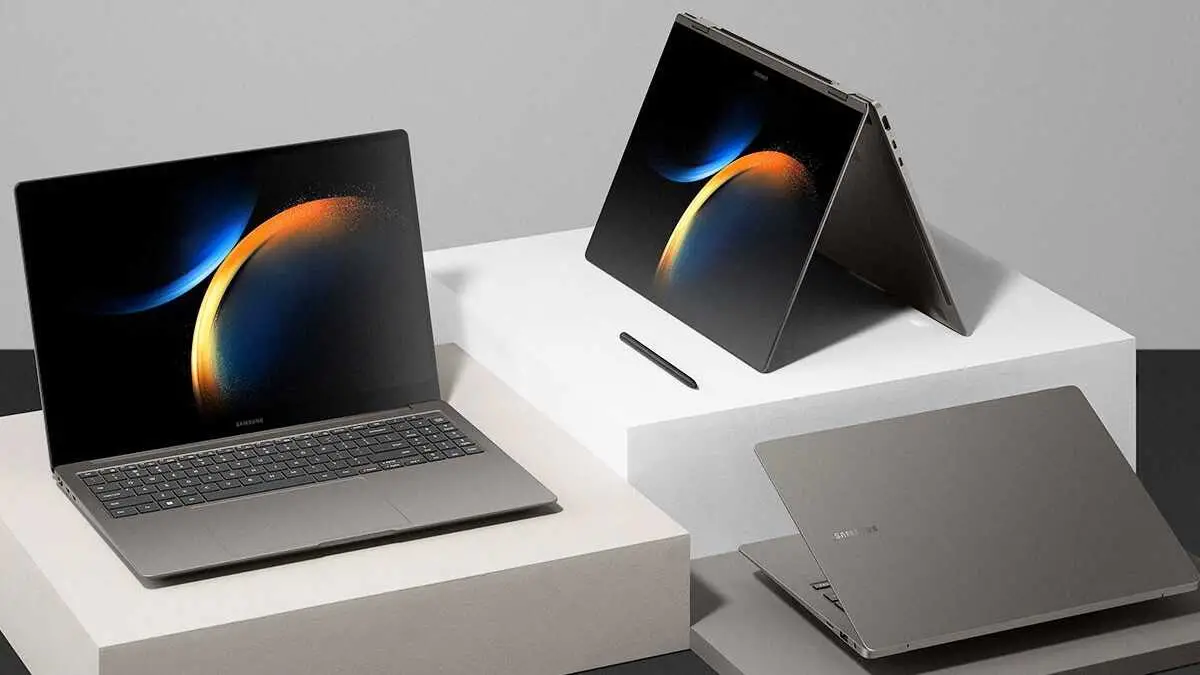Whether you’re going into mechanical or civil engineering, we’ve got you covered.
If you’re an engineering student, you’re going to need a machine that can handle resource-intensive coursework. A powerful CPU and loads of memory and storage are an absolute must. Portability is an important factor too, especially if you’re going from class to class. If you’re not sure where to begin your search, don’t sweat it. We’ve assembled a list of laptops that are perfect for engineering students, as they’re both powerful and portable. Read on to learn more.
Dell XPS 17 (2023) – Best overall
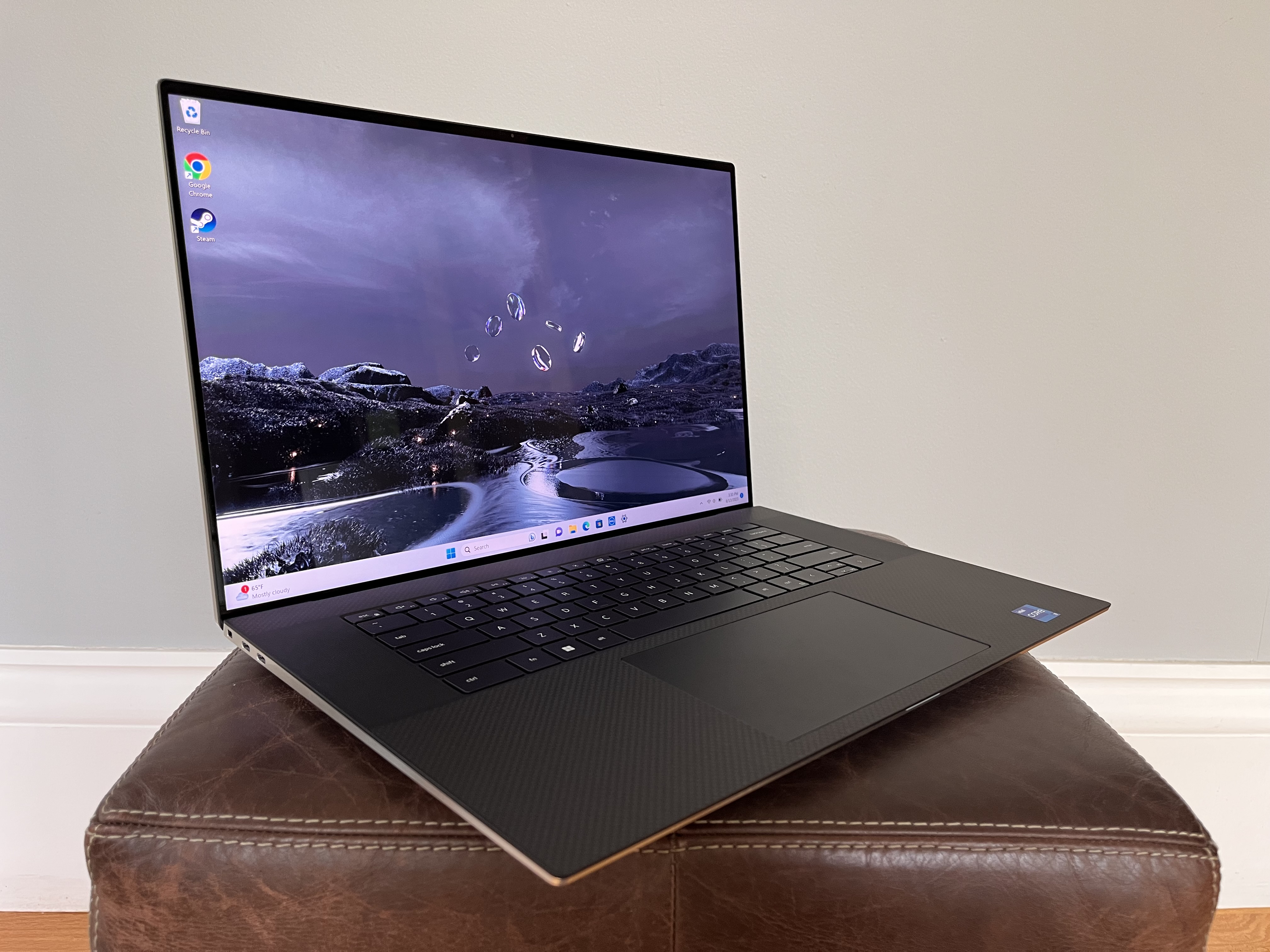
Pros
- Expansive 17-inch 16:10 display
- Thin chassis
- Incredible battery life
Cons
- High price without OLED display
- Low-wattage GPU limits 3D performance
- Low-res 720p webcam
The Dell XPS 17 has a lot going for it. You’re getting super-fast performance, a vivid display, and long battery life. The laptop also provides great connectivity features with four Thunderbolt 4 ports and an impressively long battery life. Under the hood, it’s rocking an Intel Core i7-13700H CPU, an Nvidia RTX 4070 GPU, 32GB of RAM, and 1TB of SSD storage. That’s a ton of memory and storage, which is a good thing if you’re using a lot of resource-intensive applications such as 3D CAD modeling programs
The one real downside is that the XPS 17 weighs just under five and a half pounds, so it’s a real beast. The webcam is only 720p, as well, which may be a downside if you have to do any online classes or video-conferencing. Buy if you can live with those minor shortcomings, the latest XPS 17 is a phenomenal choice.
Acer Aspire 3 – Best budget option
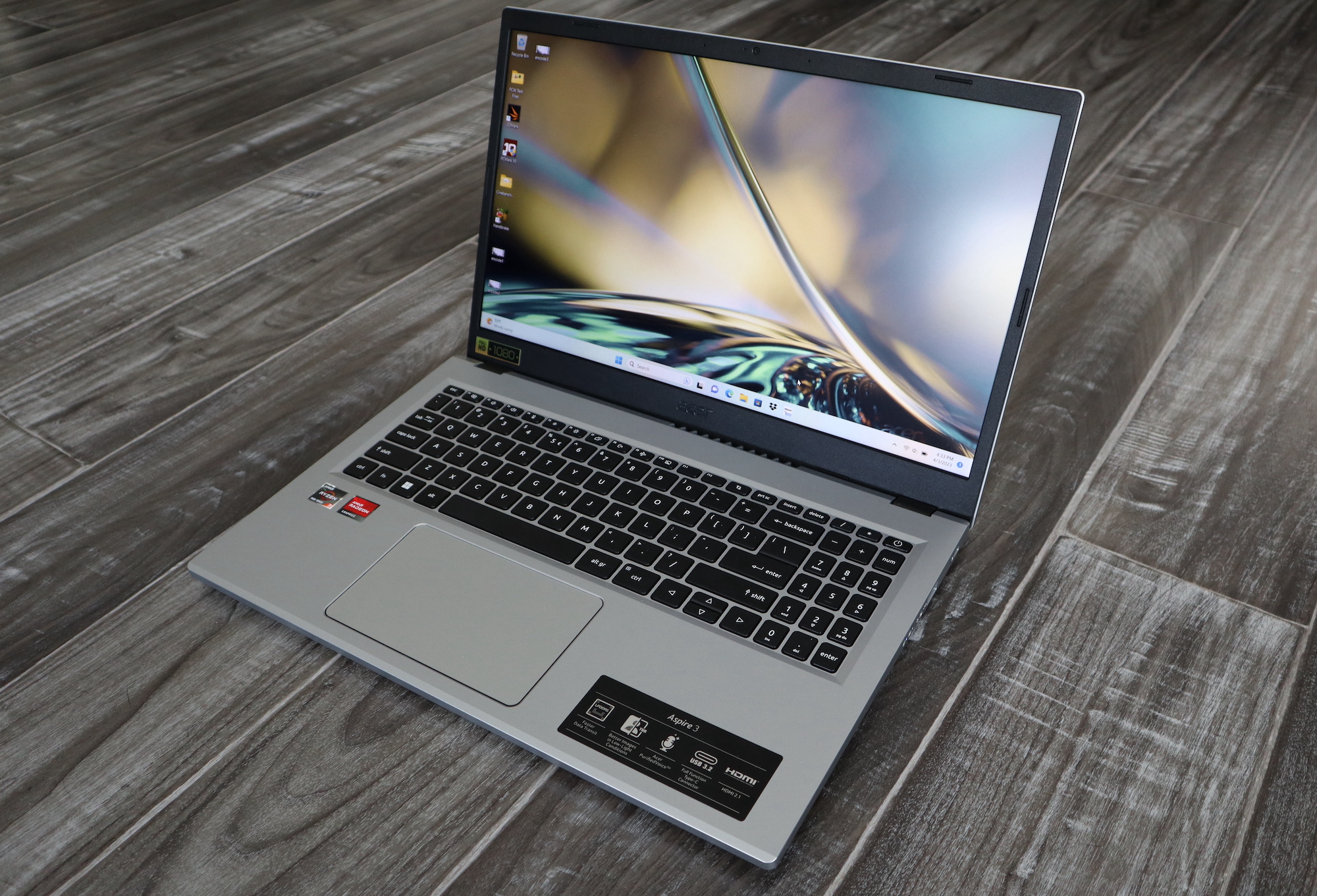
Pros
- Spacious keyboard with number pad
- HD webcam
- Solid video playback performance
- Decent business app performance
- Workday-long battery life
Cons
- Poor gaming graphics performance
- Basic 1080p display
- Small 128GB storage drive
If you’re looking to save some cash, the Acer Aspire 3 is a worthy choice. It packs a good amount of performance for not a lot of money. Plus, the full-size keyboard provides loads of room, which is perfect for writing those term papers or modifying those CAD models. While that’s all well and good, the internals are really what makes this laptop a solid value buy.
The Aspire 3 comes with a Ryzen 3 7320U CPU, 8GB of RAM, and 128GB of PCIe SSD storage. The 15.8-inch 1080p display also has decent color quality. In our tests we found that the battery was able to hold a charge for up to eight hours of continuous use—enough to last a full day of classes. One of the most surprising features was the design. While a little utilitarian, it’s one of the sturdiest builds we’ve seen on a budget laptop. All in all, the Acer Aspire 3 gives you plenty of bang for relatively few bucks.
Asus Zenbook 14X OLED – Best OLED display under $1,000
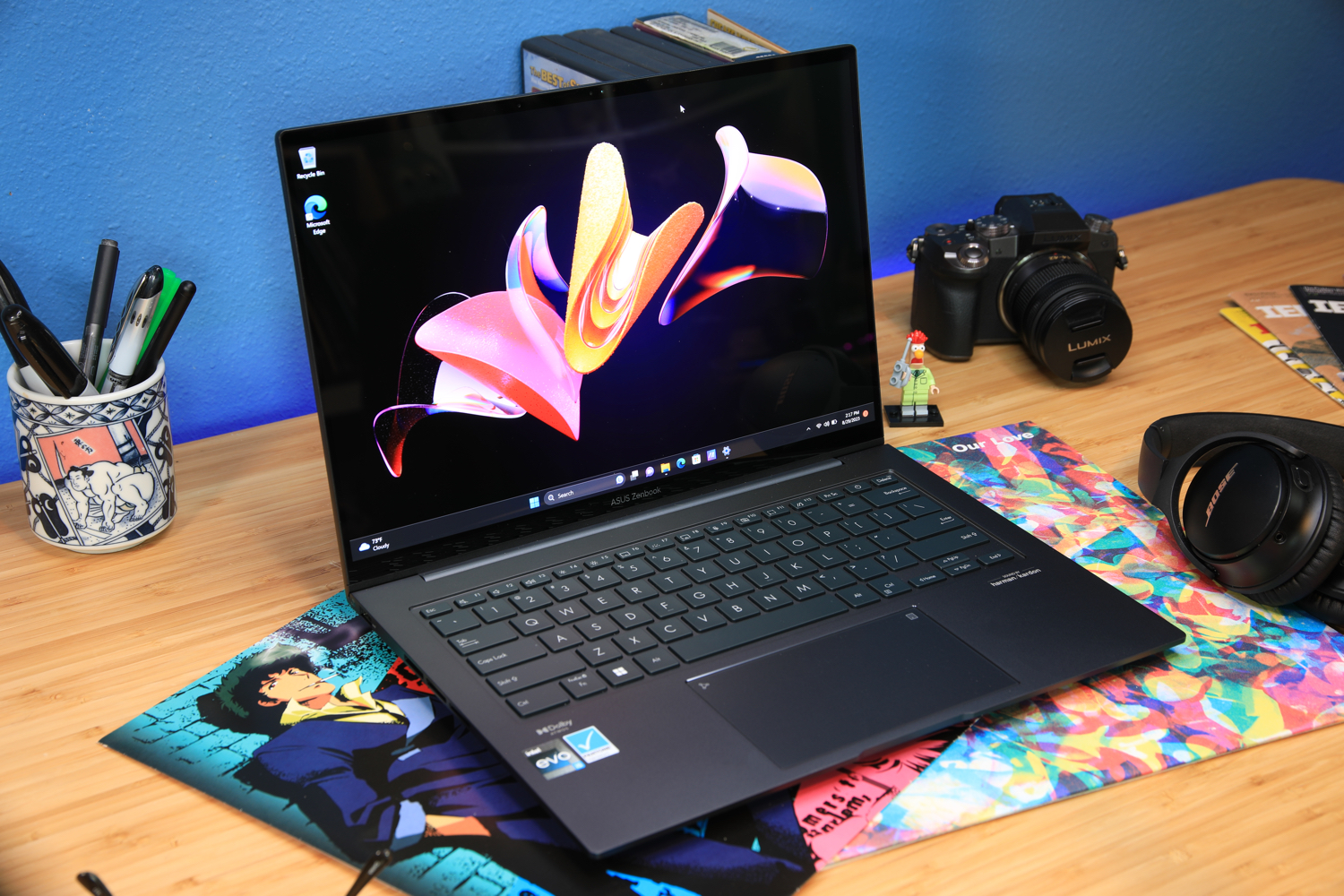
Pros
- Robust build quality
- Excellent OLED display
- Enjoyable keyboard and touchpad
- Long battery life
Cons
- Boring exterior design
- Weak graphics performance
- Could use another USB-A port
The Asus Zenbook 14X OLED has a lot going for it. This machine offers long battery life, rugged build quality, and a pleasant typing experience. However, the real star of the show is the stunning 1800p OLED display. The 14.5-inch screen features a resolution of 2880×1800 and a refresh rate of 120Hz. According to our reviewer, it “provides an infinite contrast ratio that can reach a perfect minimum luminance of zero nits.” That means you’re going to get a lifelike experience in dimly lit scenes. Want to know the best part? The whole package only costs $799.99, which is a killer value.
The Zenbook 14X comes equipped with an Intel Core i5-13500H CPU, Intel Iris Xe graphics, 8GB of RAM, and 512GB of SSD storage. In other words, it’s capable of handling engineering software as well as everyday tasks like checking email and watching Netflix. At the end of the day, it’s a sensible laptop with a superb screen. Compared to other laptops in this price point, you’ll see sacrifices in the hardware or keyboard, but that’s not the case here with the Zenbook 14X.
MSI Thin GF63 (2023) – Best for work and gaming on a budget
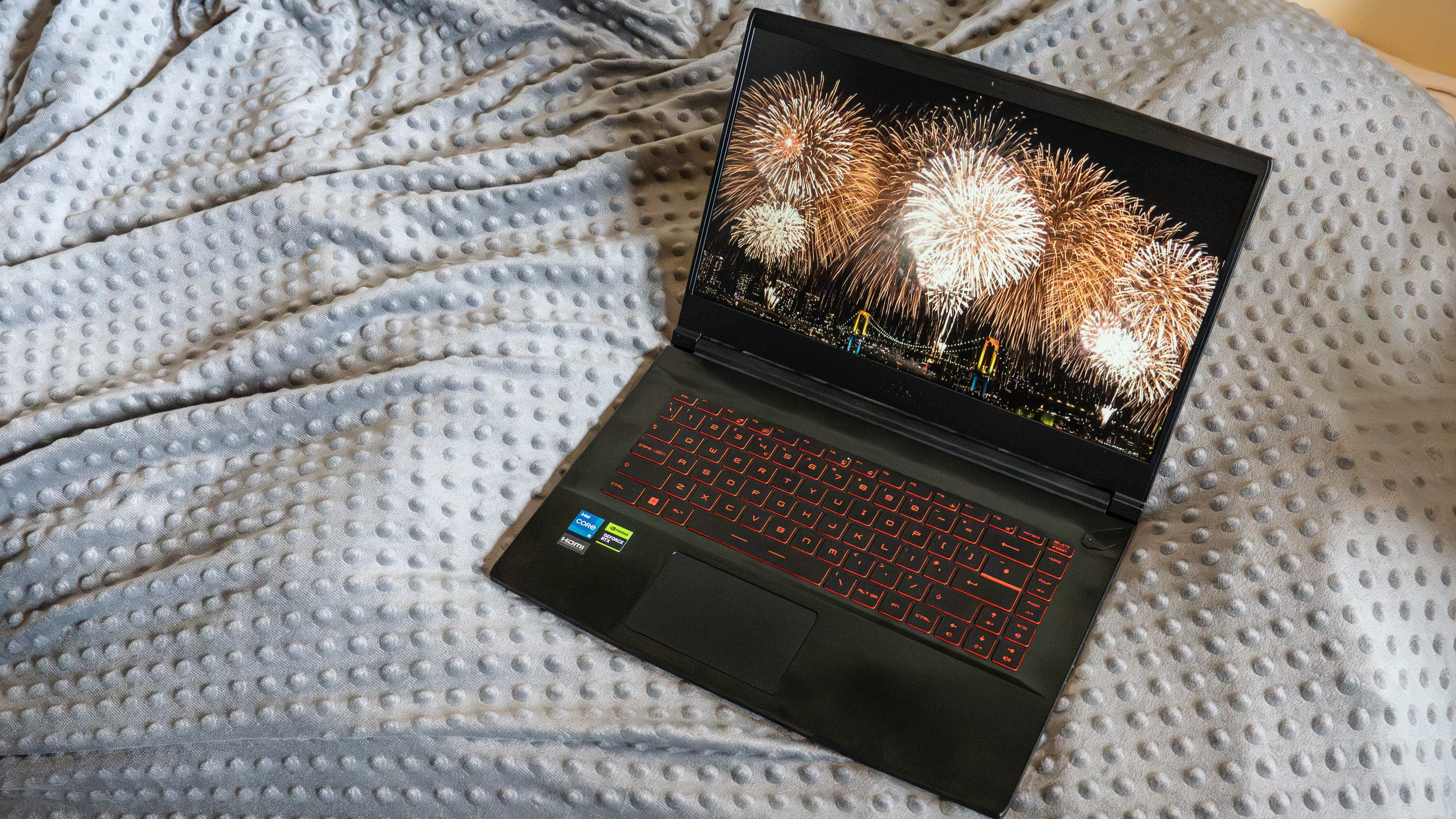
Pros
- Reasonably priced
- Decent 1080p gaming
- Well made
- Attractive red keyboard backlighting
Cons
- Disappointing screen
- Not the most powerful
- Poor battery life
If you’re looking to squeeze in some 1080p gaming between classes, the MSI Thin GF63 is worth checking out. For a gaming laptop, it’s actually quite lightweight at just over four pounds, which is great for those who like to game on-the-go. Most gaming laptops tip the scales at six pounds or more. As for what’s going on under the hood, it packs a decent amount of power for a budget gaming machine. Let’s dive right in.
The MSI Thin GF63 comes with an Intel Core i7-12650H CPU, an Nvidia GeForce RTX 4050 GPU, 8GB of RAM, and 512GB of SSD storage. Given the hardware, you should be able to run most games on the Medium or High graphics preset. For more graphically demanding games in which speed is everything, we’d recommend dialing the graphics back a bit. The 15.6-inch display has a resolution of 1920×1080 and a refresh rate of 144Hz. Although it ekes out just 300 nits of brightness (which is common for a budget gaming laptop), gameplay should be reasonably smooth thanks to the high refresh rate. It’s not the most vibrant or color-accurate screen we’ve ever seen, but it’s passable, especially for a sub-$1,000 machine.
If you can live with the sacrifices, then the MSI Thin GF63 is a great budget option for most students.
Dell XPS 13 Plus – Best ultraportable
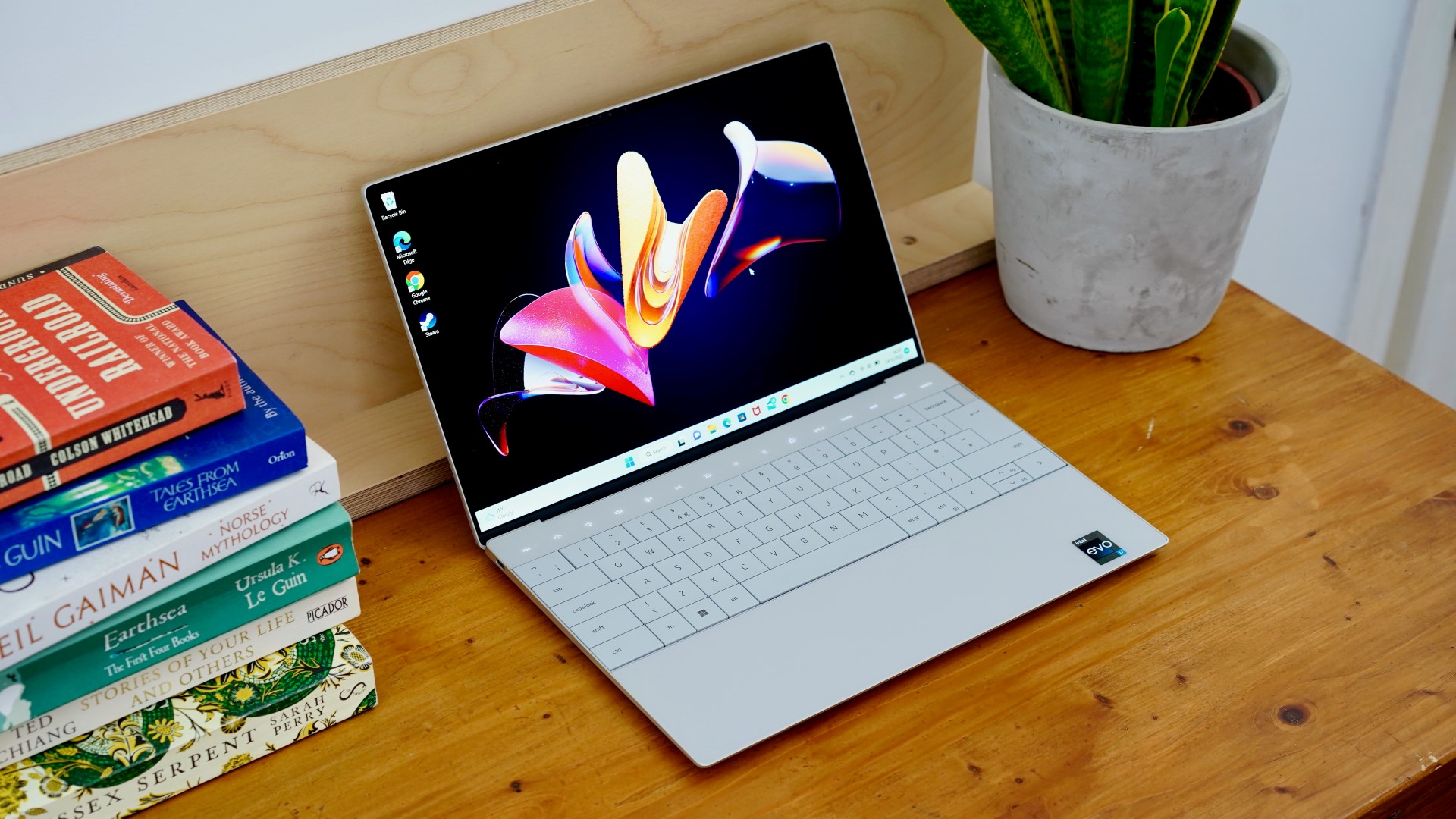
Pros
- Fast CPU
- Gorgeous 3.5K OLED
- Great audio
Cons
- Only two USB-C Ports
- Middling battery performance
- No headset jack
The display is a little small at 13.4 inches, which may irk some folks, but the OLED touchscreen is positively divine. With a resolution of 3456×2160, the picture is both sharp and vibrant. It’s a compact machine, though, so battery life is mediocre and you won’t find a lot of connectivity options. If you’re willing to overlook those limitations, then the Dell XPS 13 Plus is a good option for most engineering students.
Acer Swift Edge 16 – Best budget ultraportable
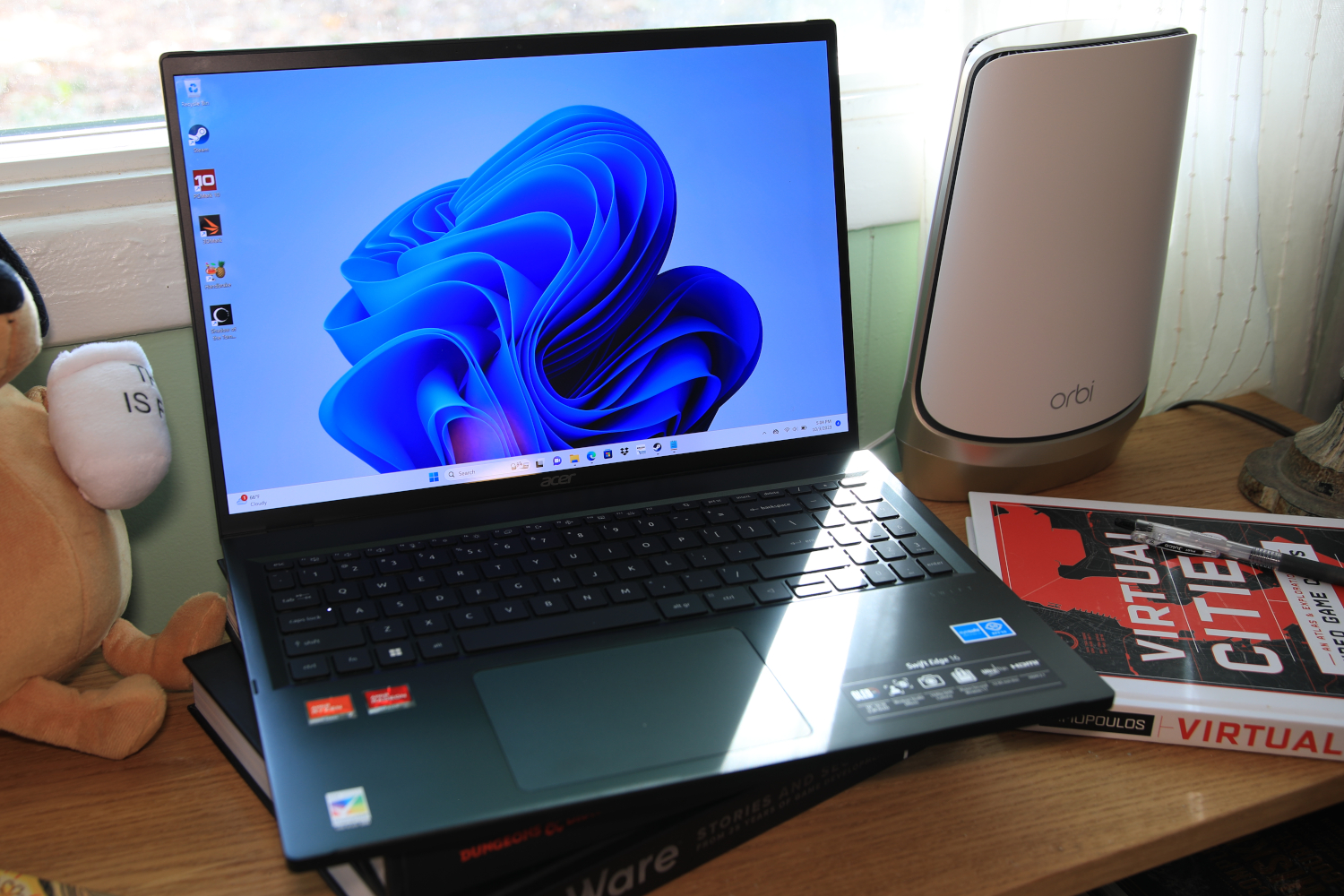
Pros
- Extremely thin and light
- Gorgeous OLED display
- Strong CPU performance in short-duration tasks
- Integrated Radeon graphics performs well
Cons
- Design doesn’t impress
- Mediocre keyboard and touchpad
- Very weak speakers
The Acer Swift Edge 16 is a fantastic laptop for students. Not only is it thin and light, but the OLED screen is gorgeous and super vibrant. It weighs just 2.71 pounds, which is considered featherlight as far as ultraportable laptops are concerned. Despite its size, you’re still getting a rather spacious 16-inch 2000p OLED display with a 120Hz refresh rate. According to our reviewer, the display “delivers an infinite contrast ratio and deep, inky black levels that produce convincing shadows in dark scenes.” While the screen is an absolute delight to binge your favorite Netflix shows on, the 54 watt-hour battery is both small and somewhat lacking, managing only six to seven hours of battery life on a single charge. That’s not a terrible result, but we’ve seen better.
The laptop features an AMD Ryzen 7 7840U CPU, Intel Iris Xe graphics, 16GB of DDR5 RAM, and 1TB of SSD storage. Whether you’re researching a topic or composing emails, it’s designed with day-to-day productivity in mind. The design itself is on the blander side, as it’s just a black square, but some folks may dig the simplicity of it. If you’re looking for a thin-and-light laptop with a stunning 16-inch OLED display, then the Acer Swift Edge 16 is a fine choice. The price (just over $1,000) isn’t too bad, either.
Asus Zenbook 14 OLED – Best battery life
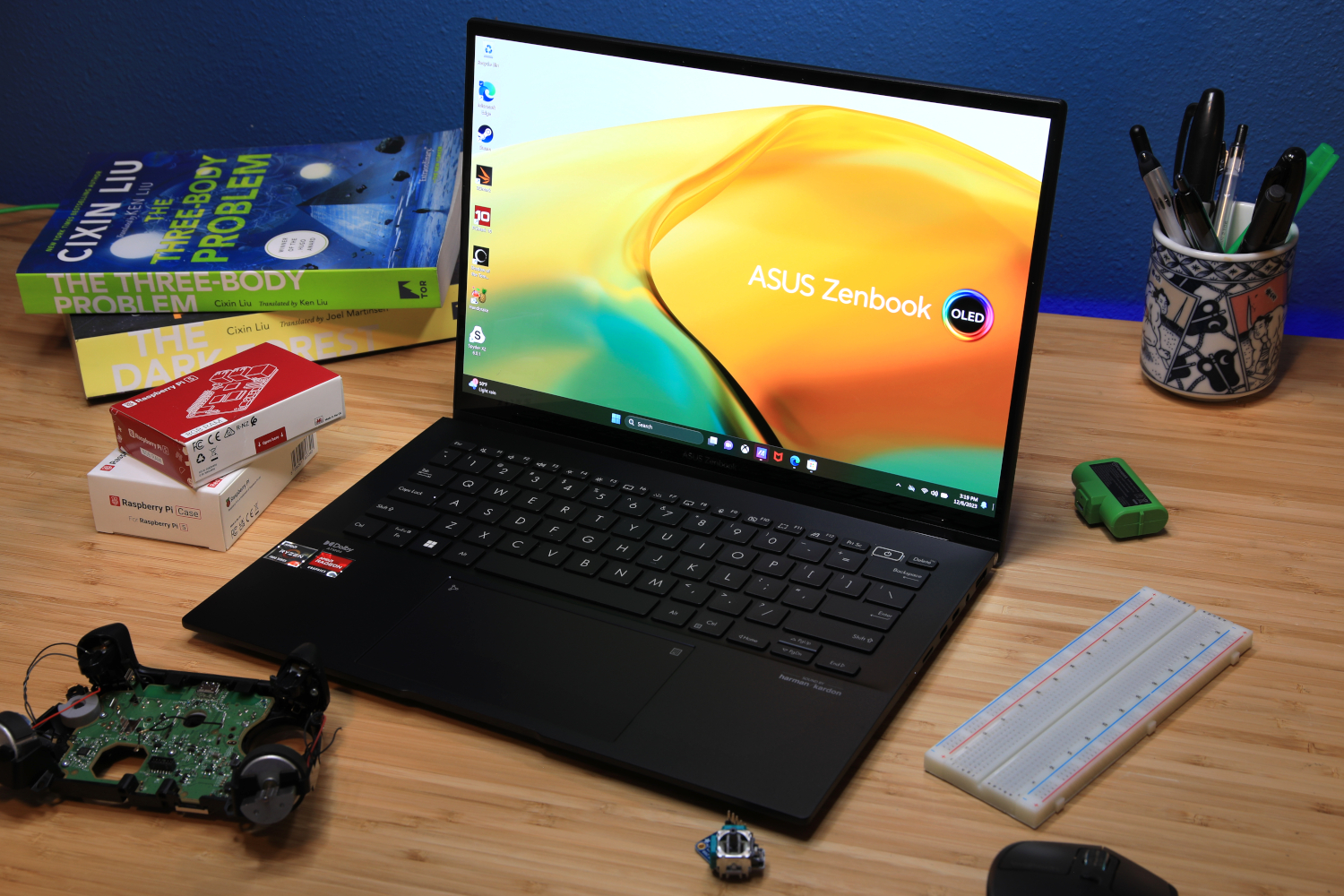
Pros
- Solid build quality
- Excellent, high-resolution OLED touchscreen
- Great battery life
Cons
- Boring design
- Touchpad could be larger
- Mediocre performance
If you’re looking for a laptop that will last you between classes, the Asus Zenbook 14 OLED certainly fits the bill. It churned out a whopping 15 hours on a single charge during our battery benchmark, which loops a 4K file until the laptop dies. You can thank the shockingly large 75 watt-hour battery for that result. The Zenbook 14 is also pretty lightweight at just over three pounds, which means you can easily throw it in a messenger bag or backpack and take it with you to class. Long-lasting and portable? Need I say more?
You’ll find some decent hardware inside, too. The Zenbook is rocking an AMD Ryzen 7 7730U CPU, AMD Radeon graphics, 16GB of RAM, and 512GB of SSD storage. In other words, this machine can handle everything from binging your favorite Netflix show to taking notes for class. The 14-inch OLED screen has a resolution of 2880×1800 and is touch-enabled, which really boosts the value of this particular machine. It also has a fingerprint reader and a modest price point ($869.99). As far as laptops for engineering students go, this one checks off all the right boxes.

